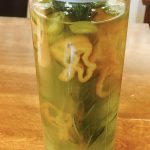Getting to Unconscious Competence.
The famous “four stages of learning” is a model to pay attention to when teaching your clients about everything from training to nutrition and lifestyle choices. For my coaching purposes, I have changed the title to “three stages of learning”. They are (1), conscious incompetence; (2), conscious competence; and (3), unconscious competence, which is my ultimate goal with the *E-Volved trainee in all phases of health. My reason for not including a category for “unconscious incompetence” is that such a person simply hasn’t the awareness to have found you yet!
I have a few clients who have reached the ultimate goal of “unconscious competence”, and I have decided that, as a trainer and a consultant, THE ultimate service I can offer my clients is to guide them to this level. I find that it is the most rewarding thing one can do is to observe the growth of people you have worked with over time and to see them wise enough to teach your theories. It is truly a process and can take years. You need to be patient! If you have valid concepts to share in training, diet or lifestyle choices, you will ultimately witness in your clients the three stages of learning listed above. The following definitions and examples will help you observe these stages for yourself.
- CONSCIOUS INCOMPETENCE
The individual does not understand or know how to do something and does not necessarily recognize the deficit. They may deny the usefulness of the skill. The individual must recognize their own incompetence, and the value of the new skill, before moving on to the next stage. The length of time an individual spends in this stage depends on the strength of the stimulus to learn. – Wikipedia
Training example: Your client is learning to squat. They are not getting depth and really just want to get on with a metabolic conditioning workout because they need to get “sweaty”. They don’t put any value into getting stronger and therefore do not put the effort into perfecting the lift. They cannot see that without strength and muscle mass they will be unable to make significant changes in their body composition.
Nutrition example: Your client proudly expresses their new found interest in nutrition and communicates that they have started eating Ezekiel bread and have cut out fats. They have recognized the importance of nutrition, but are misguided in their food quality selections.
Lifestyle example: Your client says they are getting 8 hours of sleep, and tells you they slept from 2 am to 11 am; they are very proud of that. They feel good with the amount of sleep, but need to get the timing of the rest correct in order to take full advantage of the rest, meaning early to bed, early to rise.
- CONSCIOUS COMPETENCE
The individual understands or knows how to do something. However, demonstrating the skill or knowledge requires concentration. It may be broken down into steps, and there is heavy conscious involvement in executing the new skill. – Wikipedia
Training example: Your client is squatting and really knows the importance of getting strong, but is so focused on getting the movement correct, that they move through it too slowly, and need constant cues to keep them moving fluidly.
Nutrition example: Your client is eating a low-inflammatory diet, but are mortified when you inform them that the Nori they are eating is cooked in soy oil.
Lifestyle example: Your client is eating well, training appropriately, and getting to bed early! But they work all day and have little quiet time, you constantly have to remind them about integrating it into their busy life.
- UNCONSCIOUS COMPETENCE
The individual has had so much practice with a skill that it has become “second nature” and can be performed easily. As a result, the skill can be performed while executing another task. The individual may be able to teach it to others, depending upon how and when it was learned. – Wikipedia
Training example: The client has the squat wired, they know how to do it, when to do it, and how to teach it. They can perform the lift perfectly without much thought; it comes automatically. They can monitor loads and coach others with every aspect of the skill.
Nutrition example: Your client has come up with a new recipe for burgers, with pasture fed meat and pineapple in the middle and avocado on top. They never mention a bun any more.
Lifestyle example: Your client is skipping training because they traveled the day before and didn’t eat because the food was so atrocious. They realize they are not prepared to be productive, and you are happy they have come to this conclusion on their own.
I hope you will either see yourself in the examples I have provided, or as a trainer, you will recognize your clients. Of course my examples are very idealistic, but really some of my clients, in one aspect or another, have put the pieces together and only ask for my expertise in a pinch. It feels like the ultimate success when a client gives ME good advice on Strength, Health and Happiness. My sincere thanks to those who have made the effort to get there with me!
Stay tuned: I will be in Austin, Texas next week for the PaleoFX convention. I always continue to teach, and to learn. There will be a ton of superstars there to tell about all the newest buzz around health and fitness! I will be reporting! Like me on Facebook and follow me on Twitter for up to the minute action!










